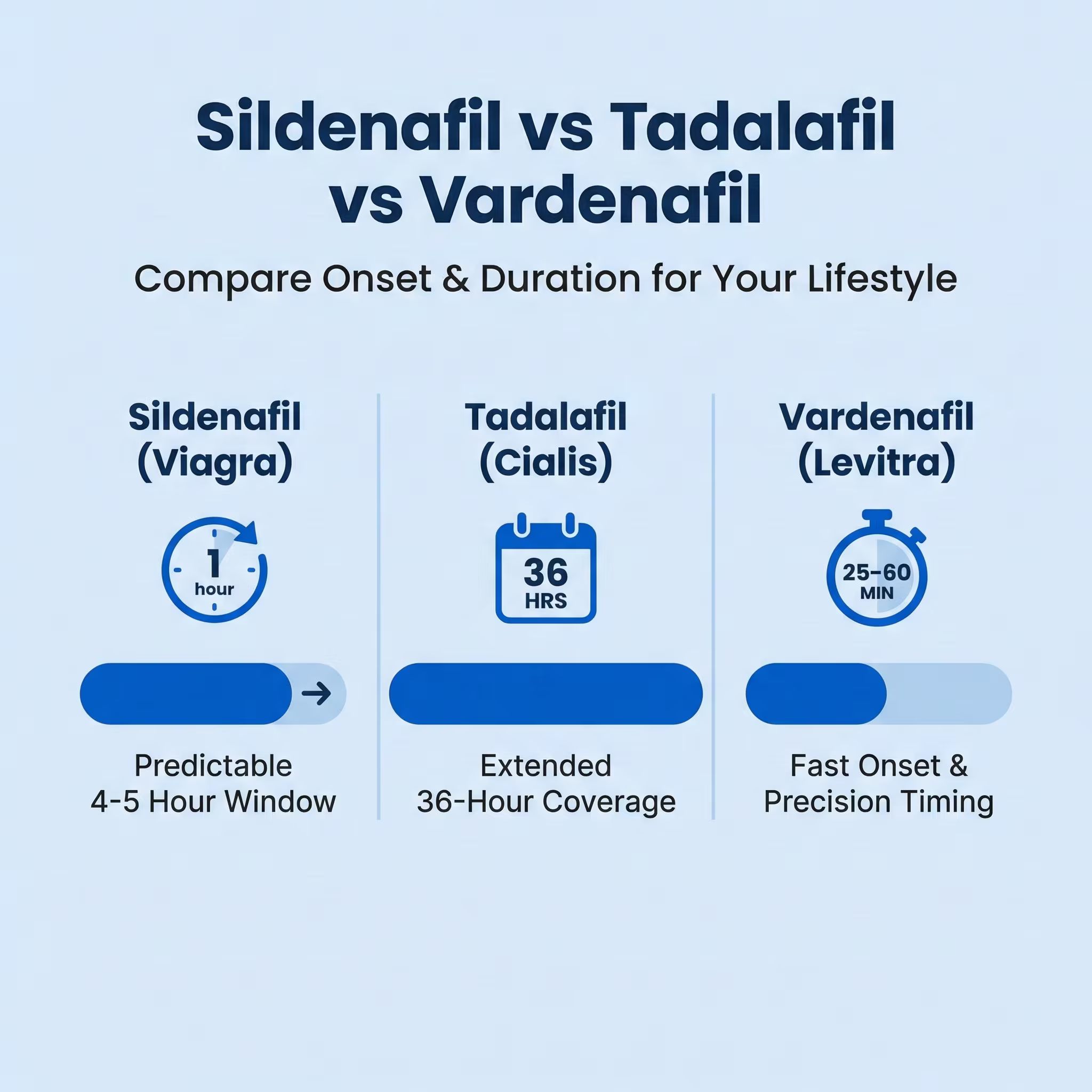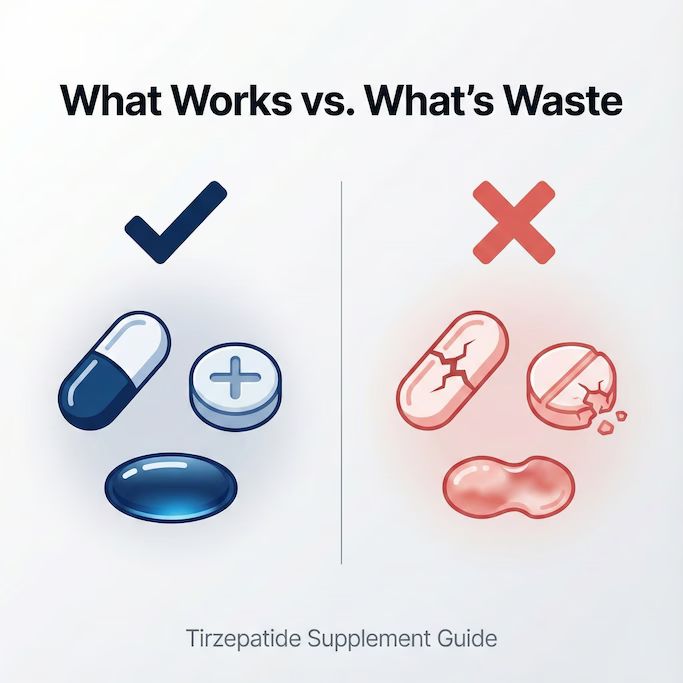A new study presented at AUA 2025 claims that GLP-1 drugs like semaglutide may improve sperm counts in obese men.
Sounds exciting. But let’s look at the numbers.
What the Study Actually Found
The retrospective cohort study looked at 385 men taking GLP-1 agonists and compared them to 385 matched controls who weren’t on the drug.
The primary focus: changes in sperm parameters.
Sperm count: Out of 351 men on GLP-1s, 10 showed improved sperm counts. That’s 2.8%. In the control group? Zero improvement.
That might sound like a win—but it’s still a very small percentage.
Sperm motility: GLP-1 group: 4.1% (10 of 241 men) improved. Control group: 4.6% (13 of 283 men) improved. So, no real advantage there.
Semen volume: GLP-1 group: 0 out of 213 improved. Control group: 10 out of 216 improved. In this case, the control group actually did better.
Despite the statistical significance for sperm count (p < 0.001), the real-world impact is minimal. Only a small fraction of men saw benefits, and other parameters stayed flat—or got worse.
Why the Numbers Matter
The authors presented this as a breakthrough. But 2.8% isn’t exactly game-changing. It tells us the effect is selective, narrow, and not consistent across the board.
So what’s going on?
It’s likely not the drug directly boosting sperm. Instead, it’s probably the downstream result of improved metabolic health—things like fat loss, better insulin sensitivity, and reduced inflammation. All of which are known to help fertility in general.
GLP-1s might act as a trigger, but they aren’t a full solution.
So what if you want more than a 2.8% chance?
Diet and Exercise Deliver Better Results
Let’s compare the GLP-1 data to what we know about diet and exercise.
In a randomized controlled trial by Andersen et al, overweight men followed an 800-calorie-per-day diet for 8 weeks.
Here’s what happened:
- Sperm concentration increased by 1.49x
- Total sperm count rose by 1.41x
- These improvements stayed intact one year later—but only in the men who kept the weight off
And how did they maintain the weight loss? With either GLP-1 therapy or regular exercise.
This shows the weight loss itself was the key driver—not the drug.
Another study by Sharma et al focused on sperm motility in men with obesity and oligozoospermia (low sperm count). Participants followed a low-energy diet.
Results:
- Total motility increased from 35% to 52%
- Progressive motility improved from 29% to 46%
- All statistically significant
These are big jumps—far more impressive than the 2.8% change seen in the GLP-1 cohort. And it happened with food changes alone.
What About Enclomiphene?
For men with low testosterone or disrupted hormone signals, enclomiphene offers another boost.
In a head-to-head study vs clomiphene:
- Only enclomiphene raised LH, FSH, and total motile sperm count
- Both drugs improved motility, but enclomiphene also improved sperm concentration
- Semen volume stayed the same
- Testosterone levels held steady.
If you’re dealing with fertility issues linked to low testosterone, diet and GLP-1s alone won’t be enough.You’ll also need to restore healthy hormone levels—and that’s where enclomiphene comes in.
Enclomiphene stimulates your body to produce its own testosterone. It activates the brain's hormonal axis to increase LH (luteinizing hormone) and FSH (follicle-stimulating hormone), which in turn boost both testosterone and sperm production.
At Maximus, we've conducted our own research on enclomiphene.
To rigorously assess the impact of enclomiphene, we conducted a large-scale study with 1,250 men. In addition to a 89.7% increase in free testosterone, participants showed an 87.1% increase in luteinizing hormone (LH), confirming that enclomiphene enhances the body's natural hormonal signaling rather than lowering it.
The significant LH increase observed in our study aligns with other research showing enclomiphene's positive effects on total motile sperm count and other semen parameters.
A Smarter Strategy
Here’s what works best: Combine diet, GLP-1s, and enclomiphene.
Each one tackles a different cause:
- Diet helps with weight loss and improves sperm quality
- GLP-1s support metabolic health
- Enclomiphene restores hormone balance
Together, they improve sperm count, motility, and volume more reliably than any single option.
Want Better Results?
At Maximus, you can combine all three in one place:
We give you the tools to improve your health and get real results—not just a 2.8% shot in the dark. Get started now.
Reviewed by Gabriel Alizaidy, MD, MS
Disclaimer: The contents of this article, including, but not limited to, text, graphics, images, and other information, is for information purposes only and does not constitute medical advice. The information contained herein is not a substitute for and should never be relied upon for professional medical advice. The content is not meant to be complete or exhaustive or to be applicable to any specific individual's medical condition. You should consult a licensed healthcare professional before starting any health protocol and seek the advice of your physician or other medical professional if you have questions or concerns about a medical condition. Always talk to your doctor about the risks and benefits of any treatment. Never disregard or delay seeking professional medical advice or treatment because of something you have read on this site. Maximus does not recommend, endorse, or make any representation about the efficacy, appropriateness, or suitability of any specific test, products, procedures, treatments, services, opinions, healthcare providers or other information contained herein. Maximus is not responsible for, nor will they bear any liability for, the content provided herein or any actions or outcomes resulting from or related to its use.
References
- Howell, S. M., Sabogal, C. R., Saffati, G., et al. (2025). PD23-06: GLP1-agonist use is associated with improved sperm counts in overweight and obese men. The Journal of Urology, 213(5S), e826. https://doi.org/10.1097/01.JU.0001110004.96669.db.06
- Service CA, Puri D, Al Azzawi S, et al. The impact of obesity and metabolic health on male fertility: a systematic review. Fertil Steril. 2023;120(6):1098-1111. doi:10.1016/j.fertnstert.2023.10.017
- Andersen, J. M., Herning, H., Witczak, O., Haugen, T. B., & Hjelmesæth, J. (2022). Body mass reduction and improvement in semen parameters after an 8-week low-calorie diet: A randomized controlled trial. Human Reproduction, 37(1), 6–14. https://academic.oup.com/humrep/article/37/7/1414/6587152
- Sharma A, Papanikolaou N, Abou Sherif S, et al. Improvements in sperm motility following low- or high-intensity dietary interventions in men with obesity. J Clin Endocrinol Metab. 2024;109(2):449-460. doi:10.1210/clinem/dgad523
- Thomas J, Suarez Arbelaez M, Narasimman M, et al. (July 06, 2023) Efficacy of Clomiphene Citrate Versus Enclomiphene Citrate for Male Infertility Treatment: A Retrospective Study. Cureus 15(7): e41476. doi:10.7759/cureus.41476
- Goldberg, A. S., & Boots, C. E. (2024). Treating obesity and fertility in the era of glucagon-like peptide 1 receptor agonists. Fertility and Sterility, 121(2), 215–222. https://doi.org/10.1016/j.fertnstert.2023.11.015










